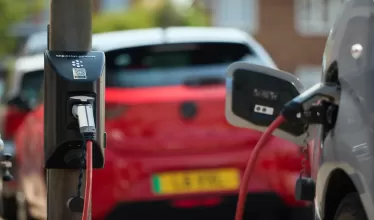The Zero Emission Vehicle (ZEV) Mandate is to be changed to make it easier for industry to upgrade to make electric vehicles (EVs), while delivering the manifesto commitment to stop sales of new petrol and diesel cars by 2030.
Included in the changes is an extension of hybrid vehicle sales - the sale of full hybrid and plug-in hybrid vehicles will now be permitted until 2035. The ban on new petrol and diesel cars remains set for 2030.
The Government is stepping up its efforts to drive electric vehicle adoption. Building on the £2.3 billion already invested in UK manufacturing and charging infrastructure - with a new charge point installed every 30 minutes - it is pressing on with tax breaks worth hundreds of millions of pounds to help people switch to EVs.
Fines for manufacturers not meeting emission targets have been reduced from £15,000 to £12,000 per non-compliant vehicle.
Also included in the changes is the exemption of small and micro-volume manufacturers – supercar brands including McLaren and Aston Martin – from the ZEV Mandate targets.
And, vans with an internal combustion engine (ICE) will also be allowed to be sold until 2035, alongside full hybrids and plug-in hybrid vans.
Support for the car industry will be kept under review as the impact of new tariffs become clear.
The Governments says that the changes will help the car industry by increasing flexibility of the mandate for manufacturers up to 2030, so that more cars can be sold in later years when demand is higher. In its allowance of hybrid cars – like the Toyota Prius and Nissan e-Power – to be sold until 2035, it hopes to help ease the transition and give the industry more time to prepare.
The Government has introduced a series of flexibilities designed to support domestic vehicle manufacturers while maintaining the overall pace of the transition to cleaner transport. These include:
- Maintaining the existing phase-out dates and headline trajectories for cars and vans
- Extending the current ability to borrow in 2024-26, to enable repayment through to 2030
- Extending the current ability to transfer non-ZEVs to ZEVs from 2024-26, out to 2029, giving significant additional flexibility to reward CO2 savings from hybrids – caps will be included to ensure credibility
- Introducing a new flexibility by allowing for van to car transfer, i.e. 1 car credit will be exchanged for 0.4 van credits, and 1 van credit will be exchanged for 2.0 car credits.
Prime Minister, Keir Starmer, said:
"Global trade is being transformed so we must go further and faster in reshaping our economy and our country through our Plan for Change. I am determined to back British brilliance. Now more than ever UK businesses and working people need a government that steps up, not stands aside.
That means action, not words. So today I am announcing bold changes to the way we support our car industry. This will help ensure home-grown firms can export British cars built by British workers around the world and the industry can look forward with confidence, as well as back with pride. And it will boost growth that puts money in working people’s pockets, the first priority of our Plan for Change.
Quentin Willson, Founder EV advocacy group FairCharge and Electric Vehicles UK advisory board member, commented:
“We understand the pressure British car makers face and welcome the Government’s declaration of support. While we don’t agree that hybrids mainly powered by a combustion engine should be included in the ZEV mandate until 2035, we do understand the reasons why, along with increased flexibilities until 2029.
“What we do want to highlight very clearly is the Government’s recognition that Britain is now a major player in the global electric car sector and that there are tremendous opportunities to create GDP, skills, jobs and economic activity. We have been saying this for years, but for Number 10 to now declare that this is a critical moment in Britain’s ambitions to become one of the most successful and creative EV markets in the world is a mighty step forward.”
Vicky Read CEO of Charge UK has said,
“After months of uncertainty, we strongly welcome the Government confirming the 2030 phase out date and the headline trajectories for EV sales. There is no doubt that the UK’s future is electric.
“However, by introducing back door amendments the ZEV Mandate has been weakened, creating uncertainty for investment in EV charging infrastructure. It is now vital that today’s announcement is swiftly accompanied by the comprehensive package of measures to help drivers to switch that the government has promised and which will smooth the path for charging investment.
“Without these measures we will confine the UK to the slow lane on the transition to electric vehicles instead of going further and faster as ministers have repeatedly promised.
“The Prime Minister is right that the transition to electric vehicles is a great opportunity for Britain. And he is right to highlight the commitment by ChargeUK members to invest £6bn in charging infrastructure through to 2030.
“But it’s an opportunity that cannot be seized if the charging sector cannot invest with confidence. We look to the Government to take the steps needed to allow us to do this.”



